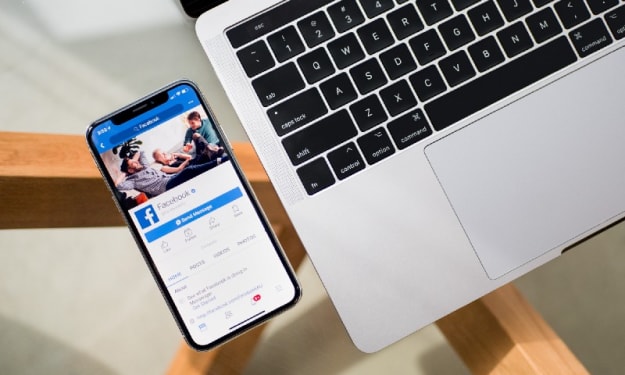A digital Euro? Why? What? When?
The European Central Bank will soon be testing a digital form of the old banknote. It is more about the stability of the financial system than about offering payment convenience.

Do you need another payment method? You have your debit card. You (probably) have some cash. And you may be using services like Apple Pay. In a few years, a new option may just be added: a payment app or card from the European Central Bank with which you can transfer "digital euros."
The digital euro would become the electronic variant of the paper banknote: the central bank issues both. And the bank guarantees the value of both.
Whether it will really come to that is highly uncertain. There is, however, a growing chance that the digital euro will arrive. The ECB recently announced experiments with it. The currency should become accessible to 'all citizens and businesses.'
It sounds quite unnecessary: yet another payment option. Yet more and more central banks are seeing "central bank digital currency" as the future. The ECB wants to be 'ready' for implementation 'when the need arises.' She wants to decide in the middle of next year.
What exactly is digital central bank money?
Like banknotes and coins, this is public money. Its value is maintained because the strong arm of the central bank is behind it. See the proud signature on the euro banknotes of the ECB president.
It is very different from the cashless money that you have in your bank account. This is private money, a claim from you on your bank, which can also go bankrupt. That claim is based on trust. Your transfer to a retailer and your Tikkie to a friend also falls or stands with confidence in private banks and payment institutions.
In principle, you can exchange your private money for public money at any time: you then withdraw banknotes. When confidence in commercial banks evaporates during a financial crisis or natural disasters - you see this exchange more often. Think of lines in front of the ATM, for example, in Greece in 2015. When the digital euro is introduced, you can also exchange your private money into digital public money. And then pay with it.
---
Why would digital central bank money be needed?
First of all, other central banks are also considering the introduction of digital central bank money. The US Fed is thinking about it, for example. The People's Bank of China and the Swedish Riksbank experiment with it, although no central bank has already decided to issue digital money.
Central bankers are not primarily concerned with payment convenience for the consumer. It is based on other considerations related to the stability of the financial system. That system is digitizing at lightning speed and, according to some, has become too dependent on the private sector.
At the top of the list of central bankers' concerns is the declining use of cash and the central banks' public money. Central banks regard the convertibility of private into public money as one of the beacons of confidence in the money system. This beacon is now in danger of disappearing from view. Digital central bank money can, in addition to cash - no central bank wants to do away with for the time being - offer a public alternative to private cashless money, it is increasingly said.
Within Europe, the use of cash is declining rapidly, especially in Scandinavian countries and the Netherlands. It is no coincidence that the Swedish Riksbank and De Nederlandsche Bank show a special interest in digital central bank money. Sweden, which is not in the eurozone, has been thinking about an "e-krona" since 2017. DNB, which is in the Eurosystem, has a 'positive basic attitude' towards digital central bank money. "The main objective is to preserve public money for general use," DNB reported in April.
Not everyone agrees with the argument that confidence in the monetary system is under pressure now that cash is in decline. "It is consumers themselves who opt for digital payment," says Wim Boonstra, an economist at Rabobank. "It does not show that confidence in the money system is declining," he says on the phone. Boonstra also points out that although cash is used less, the amount in circulation is not decreasing. This is evident from ECB data. "The cash is just there."
Arnoud Boot, economist and professor at the University of Amsterdam, see this differently. "Trust may not be an issue now, but it may be in the future. As a central bank, you may want to be on the safe side ".
There are more reasons for the introduction of digital central bank money. DNB refers to the recent discussion in the Netherlands about the monetary system. The Scientific Council for Government Policy (WRR) wrote in a report early last year that the Dutch economy has become too dependent on a few large commercial banks. According to this Council, the public arm of the system must be strengthened. The introduction of digital central bank money deserves 'serious consideration,' according to the WRR.
Boot, who co-wrote the report: "Strangely, we leave a public function - offering a place to store money - purely to commercial parties safely."
Internationally, central banks are concerned about another development: tech companies' plans to issue their own digital coins with which consumers can pay. The best-known example is Facebook's libra. The libra would initially be backed by "real" currencies such as the euro, but it may become a stand-alone currency. Think of banknotes and coins that were once tied to the gold, but not anymore.
"If the libra becomes a world currency, you suddenly get a private monetary system, with all the risks that entail," says Boot.
If Facebook offers a libra that it says is "100 percent" covered with euros, it could tempt people to buy it en masse, says Rabo economist Boonstra. "If things go wrong, the central banks can clean up the pieces. It is quite understandable that the ECB would prefer to issue a digital currency itself. "
---
What will digital central bank money look like?
We do not know that. Something can be deduced from the experiments in Sweden and China, which have been going on for some time. Earlier this year, a screenshot of a wallet, a "wallet" on a mobile phone, was leaked in China. At the top of the app is a banknote from the Chinese central bank with the image of Mao Zedong and a number of the renminbi, the Chinese currency. You can choose contactless payment, transfer, money collection, or contact another phone with the system (probably via Bluetooth). The Chinese experiment is taking place in a few large cities. For the time being, these are simulations, not real payments, writes Bloomberg news agency. Officials are involved - they "pay" with it on public transport - and McDonald's in the new megacity of Xiongan "accepts" the currency.
In Sweden, the trial with the "e-krona" is somewhat less advanced. It concerns computer simulations that do not involve citizens or companies, the Riksbank says. A wallet is also being investigated in Sweden to pay, transfer, and collect money. This wallet is being tested online as an app on phones and watches. An offline variant is also being tested.
The ECB report makes clear what such an offline variant can be: a chip card. The ECB also refers to online mobile applications as wallets.
---
As a consumer, do you still benefit from digital central bank money?
If what central banks think is true - that central digital bank money can make the financial system more secure - then every consumer will benefit because financial crises can cause a lot of misery.
Whether the digital euro will benefit you in daily life is another question - a little, Boot suspects. "In essence, the system is already working very smoothly in the Netherlands," he says. The banks have ensured fast online payments with their own iDeal system, says Boot.
The situation is different with cross-border payments, which can be cumbersome and expensive outside the eurozone. And Facebook could jump into that hole with its Libra. Boot: "You then hand over a lot of power to a private party that can also use this power against you, for example, with your data. It is better to keep a public grip on the payment infrastructure. "
Will digital central bank money replace cash?
That's not what central banks are up to. Neither ECB nor DNB nor any other central bank sees digital central bank money - at least in their own words - as a substitute for cash. It must be an additional public alternative. In Germany, in particular, there is a fear that cash will disappear. After all, you can keep cash at home in times of negative interest at no cost. On digital central bank money, the negative interest could be directly offset against the citizen. But there are no indications for this.
Besides the likelihood of a bank run, what are the other risks of digital central bank money?
Cash has a property that digital cash cannot just take over: complete anonymity of the user. According to rules against money laundering and terrorist financing alone, complete anonymity with the digital euro is probably not legally possible due to the ECB report. As with all online payments, this automatically creates pressure on privacy. "The use of data by authorities could be limited to the data needed for public tasks, such as complying with anti-money laundering legislation," suggests DNB. Much will depend on the final design of the digital euro.
Another risk is digital security. If the cryptography of chip cards containing digital euros is hacked, 'large amounts of digital central bank money can be created outside the central bank,' says DNB. The technicians at DNB and ECB are thinking hard about technical designs that should guarantee privacy and security without affecting the ease of use, speed, and efficiency of the digital currency.






Comments
There are no comments for this story
Be the first to respond and start the conversation.